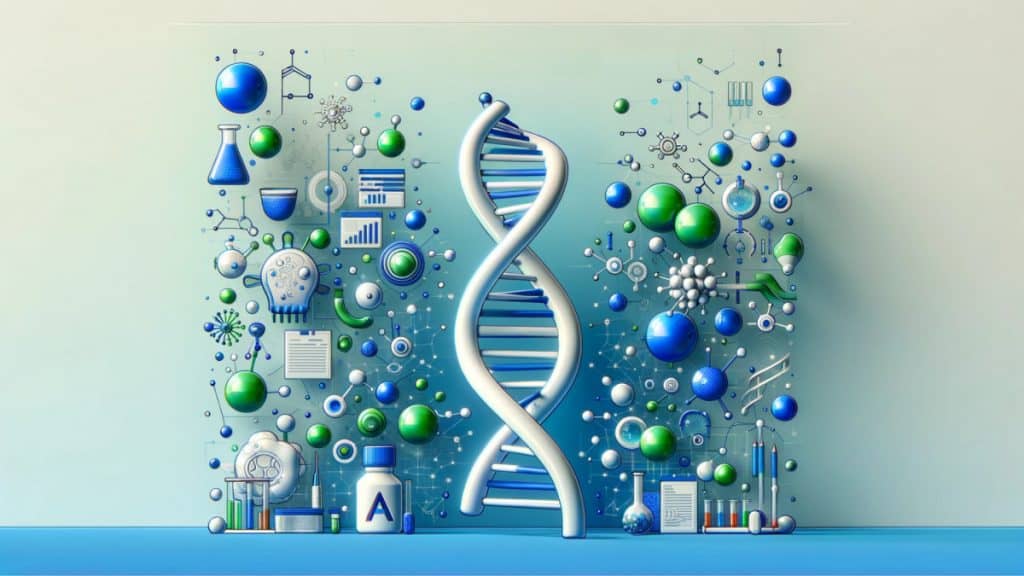Biotech Startup Cradle Raises $24 Million to Advance Protein Engineering with Generative AI


In Brief
Cradle raised $24 million to integrate generative AI into scientific processes, and enhance the design and engineering of proteins.

Dutch biotechnology startup Cradle has raised $24 million in investment to integrate artificial intelligence (AI) into scientific processes, aiming to accelerate and cost-effectively enhance the design and engineering of proteins. The company intends to allocate these funds towards team expansion and the establishment of additional engineering and laboratory facilities.
Cradle employs generative AI to facilitate the creation of proteins beyond what exists in nature. Currently engaged in over a dozen projects, the company is focused on engineering diverse protein sequences and three-dimensional (3D) structures for applications such as enzymes, vaccines, lab-grown food, and other materials.
The startup identified that the extended sequences of amino acids that make up human proteins resemble a programming language. This realization prompted the company to incorporate AI models.
While generative AI is not yet capable of creating proteins with specific functions, scientists can employ the technology to identify and select proteins based on their suitability for conditions such as room temperature or acidity.
Cradle’s proprietary generative AI, developed through training on billions of protein sequences and in-house laboratory data, aids biologists in designing improved proteins, thereby accelerating research and development and expediting drug development. Additionally, Cradle offers its web-based software solution, allowing companies to make their data accessible for use in generative AI and machine learning tools.
In the Series A investment round, Cradle garnered support from participants such as Index Ventures, Kindred Capital, as well as individual investors Chris Gibson, co-founder of Recursion Pharmaceuticals, and Tom Glocer, the former chief executive officer of Thomson Reuters.
With this recent funding, the startup has raised a total of $33 million, including a successful seed round conducted last year.
Founded in 2021 by a former Google AI Senior Product Manager, Cradle has established partnerships with notable clients, including Johnson & Johnson, Novozymes A/S, and Twist Bioscience.
Biotech Companies are Leveraging Generative AI
Generative AI in the biotechnology sector encompasses the utilization of techniques and models from generative artificial intelligence within the field.
This involves the training of models to generate original data by identifying patterns within existing datasets, specifically tailored for applications such as drug discovery, protein engineering, diagnostics, and personalized medicine solutions.
In a recent development, Evozyne, a deep learning biotech startup, successfully concluded an $81 million Series B investment round. This funding was led by investors, including OrbiMed, Fidelity Management & Research Company, and NVIDIA, among others.
The primary objective of Evozyne is to propel generative artificial intelligence (AI)-driven drug development endeavors. The company’s algorithms simulate years of protein evolution more efficiently, compared to traditional methods that focus on localized sequences.
Disclaimer
In line with the Trust Project guidelines, please note that the information provided on this page is not intended to be and should not be interpreted as legal, tax, investment, financial, or any other form of advice. It is important to only invest what you can afford to lose and to seek independent financial advice if you have any doubts. For further information, we suggest referring to the terms and conditions as well as the help and support pages provided by the issuer or advertiser. MetaversePost is committed to accurate, unbiased reporting, but market conditions are subject to change without notice.About The Author
Alisa is a reporter for the Metaverse Post. She focuses on investments, AI, metaverse, and everything related to Web3. Alisa has a degree in Business of Art and expertise in Art & Tech. She has developed her passion for journalism through writing for VCs, notable crypto projects, and scientific writing. You can contact her at alisa@mpost.io
More articles

Alisa is a reporter for the Metaverse Post. She focuses on investments, AI, metaverse, and everything related to Web3. Alisa has a degree in Business of Art and expertise in Art & Tech. She has developed her passion for journalism through writing for VCs, notable crypto projects, and scientific writing. You can contact her at alisa@mpost.io






















































